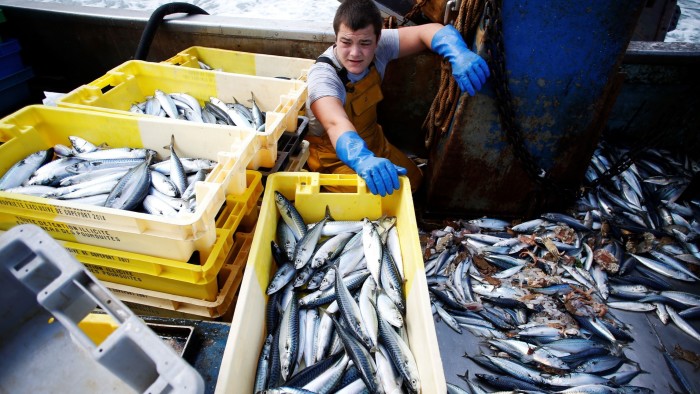Hopes are growing in London and Brussels that a crucial summit in May will open the door to a UK-EU defence pact and wider economic deal, and that it will not be derailed by a simmering dispute over fishing quotas.
“I think we are in a very good place,” said one EU official, referring to the Brussels summit that will formally kick off negotiations on a post-Brexit reset of relations. “Things are progressing very well.”
UK ministers are also optimistic the May 19 event will clear the way for closer economic ties, building on the trust developed by a new security and defence pact.
“It’s one of the big things we are looking to achieve on the economy in the next few months,” said one senior figure in Sir Keir Starmer’s Labour government. Starmer wants to pull all available levers to boost growth.
EU coastal states, led by France, have demanded UK guarantees over fishing rights before committing to a new defence and security partnership with the UK, to the frustration of some other member states.
Jessica Rosencrantz, Europe minister of UK ally Sweden, said: “We need to be realistic. I think that there’s a broad agreement among EU leaders that we want a defence partnership with the UK.
“But let’s also be frank that there are sensitive issues for many, many EU countries, such as fisheries, which need to be addressed. So I would really urge both the EU and UK to find agreements on these various issues so that we can enter profound defence co-operation.”
The current EU-UK fishing deal, originally negotiated as part of the EU-UK Trade and Cooperation Agreement, expires in June 2026.
While EU officials warned that the two sides were still not agreed on precise timelines or numbers for a new deal, there was growing optimism that the basis for an agreement would be found ahead of the summit.
One senior EU official suggested that while there was not time to reach a fully agreed legal text by the time of the summit, there would be British commitments to show “the discussion is going in the right direction”.
Striking a deal on fish would open the door to a EU-UK security pact that could also enable the UK to take part in a new €150bn defence spending push as the bloc looks to re-arm in the face of Russian aggression and growing question marks over US security guarantees.
The May 19 summit, while focusing on defence, is expected to open the door to wider discussions on the EU-UK reset.
EU officials said talks would focus on three main areas: a veterinary agreement to cut red tape for trade in food and plant products; an agreement to re-link EU and UK carbon markets; and a “mobility pact” for young people aged 18-30.
Starmer has repeatedly dismissed signing a youth mobility agreement with Brussels, arguing that it would be too close to a return to free movement of people, which Labour has ruled out, along with rejoining the EU single market or re-entering into a customs union.
British officials insist a compromise can be reached. Visas are expected to be required to take part in what might be rebranded as a “youth experience” scheme, allowing the UK to cap numbers.
However, it is far from clear this would be acceptable to the EU side, which has insisted that some form of youth mobility deal is essential to make progress in other areas.
Last week Sir Olly Robbins, the UK’s top official in the original Brexit negotiations, gave a presentation to EU ambassadors in London in which he outlined the dangers of both sides allowing history to repeat itself.
According to two people at the meeting, Robbins told the attending diplomats that Brussels had made big mistakes in the aftermath of Brexit, moving too quickly to punish the UK for its vote to leave and never fully engaging with UK suggestions.
Robbins said the EU practice of making then-UK prime minister Theresa May wait outside the room at European Council meetings, sometimes for hours, while they discussed Brexit among themselves had been unnecessarily humiliating.
He added the EU’s “obsession” with sequencing — echoed in the current stand-off with France and others demanding a fishing agreement before a defence pact — had also prevented a better deal being reached between the two sides.
Sandro Gozi, who is from France’s ruling party and heads the European parliament’s UK delegation, told the Financial Times he believed agreement on both was close.
“If we want to build truly a new European security concept, we have to go hand in hand between the UK and EU. So I hope May 19 can be a good moment to take a decision on this.”
Source link









